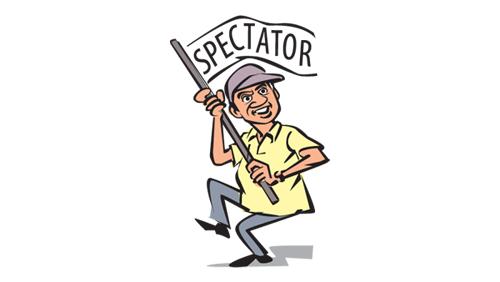
It may have taken months of procrastination, but the United National Party (UNP) this week finally arrived at what was, for many, an inevitable decision that they had been postponing: it requested former Finance Minister and Assistant Leader of the party, Ravi Karunanayake, to step down from his position in the party.
Last week, we wrote in these pages how the Chief Minister of the Uva Province, Chamara Sampath Dassanayake was compelled to resign as Provincial Minister of Education following allegations that he forced a school Principal to kneel down. That the Chief Minister was doing so very much against his wishes was evident in the fact he continues to hold that office, having resigned only from his Education portfolio.
Formally stepped down
At the time of writing, Karunanayake has not yet formally stepped down from his position as Assistant Leader of the UNP.
However, the party was publicizing the findings of the Tilak Marapana Committee appointed by Prime Minister Ranil Wickremesinghe to study the report of the Commission of Inquiry into the sale of Central Bank bonds. “There are no findings against any member of the United National Party, including Ravi Karunanayake, in regard to the issuance of Treasury Bonds,” the statement by UNP General Secretary and Minister Kabir Hashim said. Karunanayake has not offered to step down as Assistant Leader.
Instead, a committee appointed by the party leader recommends that he should. It sounds as if Karunanayake is unwilling to do so and needs to be dragged away from his pedestal, kicking and screaming. Of course, he is entitled to the presumption of innocence unless and until he is tried by a court of law and found guilty.
A protracted process
That has not happened yet, and is likely to be a protracted process. However, justice must not only be done, it must also appear to be done. So, it doesn’t behove someone to strut around as the Assistant Leader of one of the two major political parties in the country when there are serious allegations against him.
It doesn’t require a long memory to recall Karunanayake’s resignation from the Cabinet. By then the scandal over the sale of Central Bank bonds had broken and Karunanayake was transferred from the Finance portfolio to the Ministry of Foreign Affairs.
Matters however got worse when it emerged, from evidence led at the Presidential Commission of Inquiry, that the rent of Karunanayake’s apartment had been paid for by Arjun Aloysius, a key person of interest in the inquiry.
That is when Karunanayake was compelled to resign. In his resignation speech to Parliament, Karunanayake painted himself as a paragon of virtue and declared that he was falling on his sword for the sake of his party, even though he was innocent and no allegations against him had been proved.
Be that as it may, to the discerning observer, it sounded very much like the last words of someone who is being pushed overboard, not jumping ship. Therefore, we must necessarily ask of the UNP, the same question we posed to the Sri Lanka Freedom Party (SLFP) last week over the Uva Chief Minister’s resignation from the provincial education portfolio: would any of this have come to pass if there was no local government election in a few days’ time and public attention is focussed on the manner in which political parties conduct themselves?
This President, this Prime Minister and this government was elected on a platform of ‘good governance’- as opposed to an oligarchy controlled by a cabal loyal to one family and one family only before whom the rule of the law was not operating.
There was a palpable sense of resentment against this ‘system’ which is why President Maithripala Sirisena won the Presidential Election in 2015 defying all predictions, and against all odds, not by a wafer thin majority, but by almost half a million votes.
A government elected on such a mandate cannot take refuge in legal jargon and procedural technicalities. The public demand a higher standard of moral probity and ethical conduct from the leading figures of such a government.
There is nothing to suggest that either President Maithripala Sirisena or Prime Minister Ranil Wickremesinghe have violated that trust placed in them. However, the same cannot be said of those in the two parties they command. The allegations against even those with ministerial rank in both, the SLFP and the UNP keep coming and the conduct of some of them can hardly be called exemplary.
Damaging
That is damaging not only for the SLFP and the UNP but also for President Sirisena and Prime Minister Wickremesinghe. When those under their purview get embroiled in scandals and controversies and are constantly called upon to clear their names, the leaders get tarred with the same brush.
The question that the public then ask is whether the leaders sanction or condone such acts and if they do not, why action is not being taken against the alleged offenders? It is significant that the country and its people have moved away from passive acceptance of corruption among politicians - as they were during the previous regime - to vocal protest, as they are now.
It is also commendable that political parties are acting in response to those sentiments now, even if they do so reluctantly, and even if they are doing so only because there is an election imminent.
Such actions - and resignations of persons in power, when their conduct is called into question- must however become the norm, not the exception. That is why the steps taken against Uva Chief Minister Chamara Sampath Dassanayake and Ravi Karunanayake fall far short of public expectations.
Their respective political parties will have only themselves to blame if the masses decide to punish them for that.
